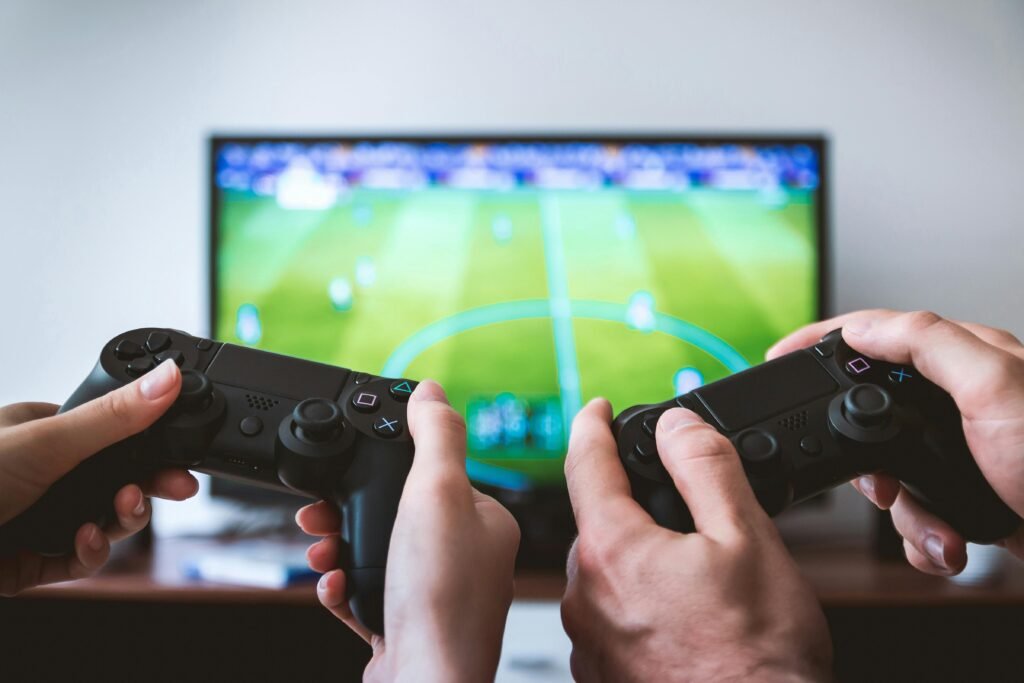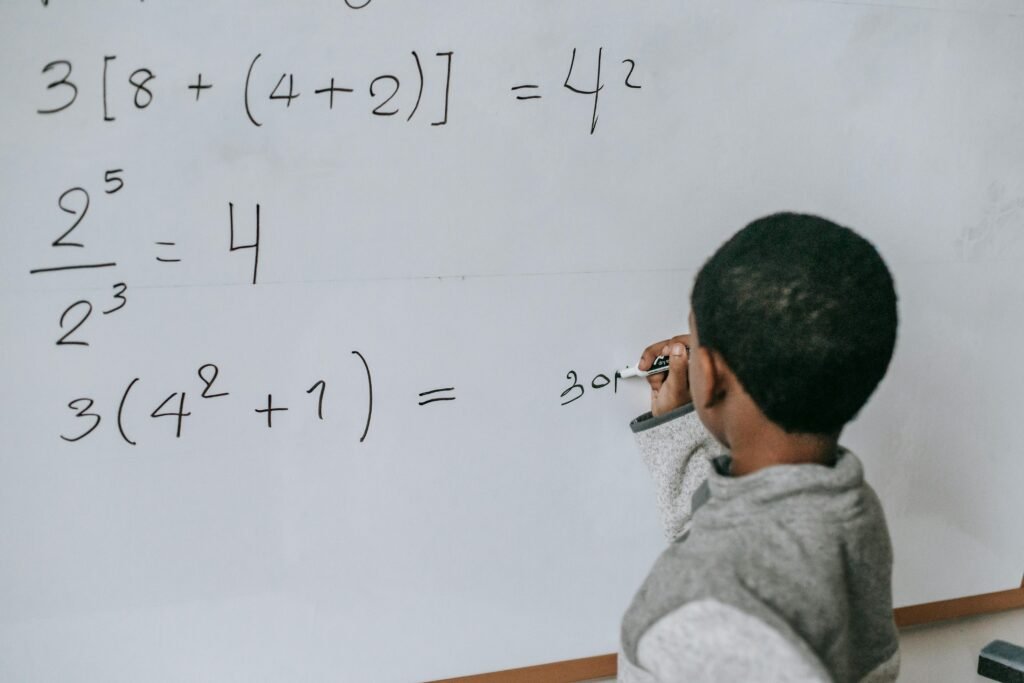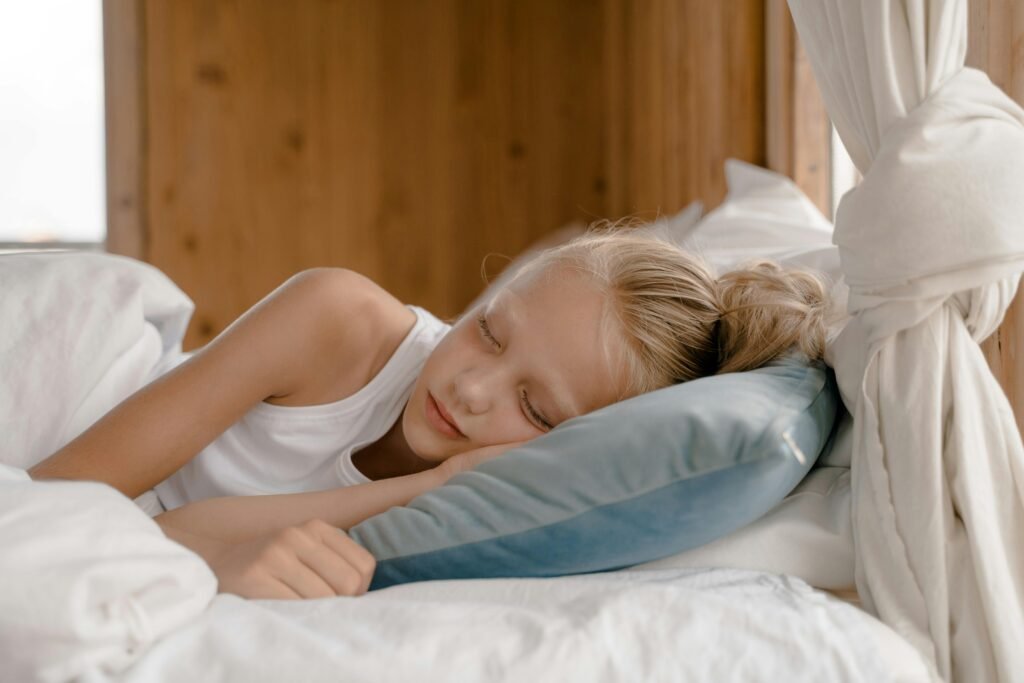Esports is more than just fun and games. For many kids and teens, it’s a serious passion. Some even dream of going pro. But with all the practice, late-night games, and online tournaments, many students are starting to feel the pressure—not just in-game, but in school too.
1. Esports athletes practice an average of 5 to 10 hours per day
Esports isn’t just a hobby anymore—it’s a lifestyle. For many student players, gaming takes up a huge part of their day. The average esports athlete is spending between five to ten hours every single day in practice. That’s more than the amount of time most kids spend in school.
At first, this might sound exciting. After all, practicing more helps you get better, right? But when those hours start to replace study time, meals, sleep, or time with family, it can become a real problem.
If your child is practicing five hours a day, and still managing to keep up with school, it might be okay. But at ten hours a day, even a strong student will start to feel the effects. This kind of screen time can lead to eye strain, poor posture, skipped homework, and high stress.
So what can you do?
Start by sitting down with your child and looking at their full day. How many hours go to gaming? How much time do they need for homework, meals, and sleep? Create a simple daily schedule. Give esports a set time slot—no more, no less. This gives your child the freedom to enjoy what they love, while also building self-control.
If they have a team or coach, help them communicate their limits. Teams that practice smarter—not just longer—often perform better. Try focusing on focused one-hour blocks with breaks instead of long, endless sessions.
And remember—gaming is more fun when it doesn’t feel like a job. Help your child keep it balanced, so they can enjoy both school and esports without burnout.
2. 60% of student esports players report sleeping less than 6 hours on nights before competitions
When game night turns into an all-nighter, sleep is the first thing to go. Over half of student gamers say they sleep less than six hours before tournaments or big competitions. That’s far below what their brains need to work well.
Lack of sleep doesn’t just make kids tired. It affects memory, focus, and even emotions. A child who goes to school with less than six hours of sleep will likely have trouble paying attention, doing homework, and keeping a positive mood.
This gets even harder before big gaming events. Students often feel excited or nervous. They may stay up practicing or simply struggle to fall asleep because their minds are racing. While this is normal once in a while, it shouldn’t be the norm.
So, what can you do?
First, talk about sleep with your child. Many teens don’t realize how important it is. Explain how sleep helps their brain play better, solve problems faster, and remember game strategies more clearly. Better sleep can even help with reaction time, which is a big part of esports success.
Second, create a calming routine on game nights. About an hour before bed, ask your child to turn off screens. Encourage reading, stretching, or relaxing music. Keep their room cool and dark. Avoid snacks or drinks that contain caffeine.
Lastly, plan ahead. Make sure all schoolwork is done before game nights. That way, your child won’t feel the pressure to finish both homework and practice late into the night.
The truth is, six hours isn’t enough. And your child will play and learn much better when their body and mind are fully rested.
3. Esports players in high school average 1.5 fewer hours of sleep than non-players
This is a quiet problem most parents never see coming. On average, high school students who are into esports get one and a half fewer hours of sleep each night than kids who don’t play competitively. That may not seem like much—but over time, it adds up.
One and a half hours each night becomes ten and a half hours a week. That’s more than a full night’s sleep lost every single week. Over a month? That’s nearly two full days of rest missing from their lives.
This sleep gap affects a student’s energy, mood, memory, and ability to learn. It can even make them more likely to feel anxious or sad. For kids who are trying to do well in school and esports, that missing sleep becomes a hidden weight they carry all day long.
What’s the solution?
Start by tracking sleep. Use a simple journal or a sleep-tracking app. Show your child how many hours they’re actually getting. Once they see the numbers, they’ll understand why they feel so tired in the morning.
Set a bedtime—yes, even for teens. It doesn’t have to be super early, but it should give them at least 8 hours of rest. If practices are running late into the night, work with their coach or team to find a healthier schedule.
Also, talk about the bigger picture. Remind your child that good players don’t just grind nonstop—they take care of their health too. Sleep is part of the training. It’s how champions recover, grow stronger, and stay sharp.
Protecting sleep is one of the best ways to protect your child’s future—both in school and in gaming.
4. 74% of student esports players say practice cuts into homework or study time
This stat hits home for a lot of families. Nearly three out of every four student gamers say that practice takes time away from schoolwork. That’s a huge number—and it shows just how easy it is for gaming and learning to clash.
It’s not that kids are lazy. It’s often a matter of time and energy. After hours of gaming, the brain feels tired. The eyes are sore. The body just wants to rest. So homework gets pushed aside. Assignments are rushed or missed. Study time shrinks to just a few minutes, or disappears completely.
This can quickly turn into a pattern. A missed assignment becomes a bad grade. A bad grade becomes a warning. Before you know it, your child feels stuck—too behind to catch up, too tired to try.
Here’s how to turn things around.
Help your child build a new habit: study before you game. Even 30 minutes of focused homework time before practice can make a big difference. Once the brain is in “relax” mode, it’s much harder to switch back to “focus” mode. That’s why gaming should come after schoolwork—not before.
Create a daily school checklist. Keep it simple: “Math done? Science read? Essay started?” Once it’s complete, then it’s game time. You can even make it fun—like a real-life mission they need to finish before jumping into the virtual world.
Support also matters. Let your child know that school isn’t just about grades. It’s about learning how to think, solve problems, and grow. These are the same skills great gamers use every day.
By keeping practice time from stealing study time, you help your child win both in school and on screen.
5. Students who practice esports more than 15 hours per week report a 0.4 drop in GPA on average
Fifteen hours a week. That’s just over two hours a day. For most students, that might not seem like a lot. But when it comes to esports practice, crossing that 15-hour mark can make a big difference—especially in school performance.
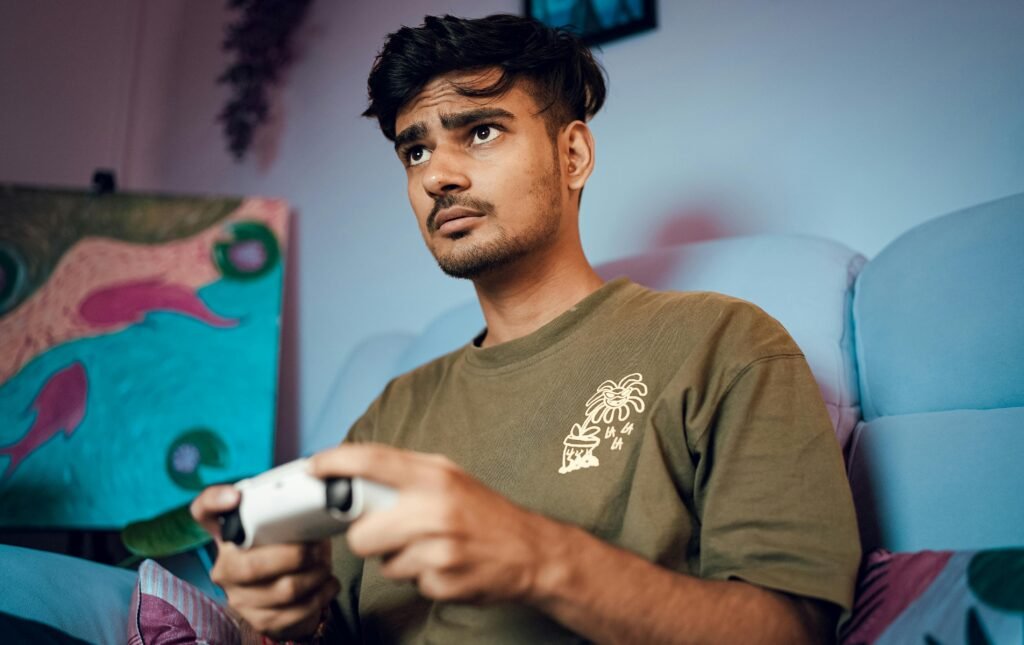
This drop happens for a few reasons. First, there’s less time for studying. Second, more gaming means less sleep and more mental fatigue. And third, some students lose focus in class because their minds are still on the game from the night before.
So what can you do to help?
Set a weekly practice limit. Talk with your child about what 15 hours really looks like. Try staying under that number during busy school months. When schoolwork is lighter, like during holidays, you can adjust.
Keep GPA as a focus. Help your child track their grades. If you start to see a dip, look at the time spent gaming. Adjust practice hours as needed.
You can also create a reward system. For example, if your child keeps their GPA above a certain level, they get bonus game time on weekends. This builds responsibility and shows them how school and gaming can work together—not against each other.
Keeping esports hours balanced can protect your child’s GPA—and their confidence in school.
6. 80% of student esports players in college admit to missing at least one class per week due to gaming
This stat tells a powerful story. When four out of five college esports players say they skip class at least once a week for gaming, it’s not just about time—it’s about priorities.
Many of these students are serious about esports. They’re part of college teams. They compete. Some even earn scholarships. But skipping class—even once a week—adds up fast. That’s 16 classes missed per semester. Missed notes, missed quizzes, missed chances to ask questions or get help.
So why do they skip? Some stay up too late playing or practicing. Others travel for competitions. Some just feel too tired or overwhelmed the next morning. Whatever the reason, skipping class can slowly start to hurt academic progress.
What can be done?
Start with accountability. Whether your child is in high school or heading to college, talk about the importance of showing up. Gaming will always be there—but some learning moments only happen once.
Set attendance goals. Even one week of perfect attendance can build momentum. If your child is struggling to keep up, try a simple check-in each morning: “Did you go to class today?”
Encourage time blocking. If your child knows they have class at 9 AM, then esports should wrap up no later than 10 PM the night before. Build this rhythm together.
Finally, help your child see class not as a chore, but as part of their mission. Just like a gamer studies maps and learns skills, students need to study for real-life success. Skipping one match might cost you a win. Skipping one class might cost you a grade.
7. Only 23% of high school esports players get the recommended 8 hours of sleep on school nights
Let’s be honest—most teens don’t get enough sleep. But for esports players, it’s even worse. Only about one in four high school gamers are getting the healthy 8 hours of sleep their brains and bodies need.
That means the other 77% are running low—every day.
Without enough sleep, kids lose focus. They get moody. They zone out in class. Their memory suffers. They’re more likely to get sick. And they struggle more with both school and gaming.
Why does this happen? Mostly because practice stretches late into the night. Tournaments can go until midnight or later. After the game, kids often scroll through highlights, message friends, or watch streams. Before they know it, it’s 2 AM.
You can help break this cycle.
Set a firm bedtime goal—even if it’s just 10:30 or 11 PM. Then work backwards. If your child needs 8 hours, what time do they need to wake up? Subtract that from bedtime. That gives you the target.
Build a power-down routine. One hour before bed, no more screens. Dim the lights. Use that time for stretching, journaling, or reading. A peaceful bedtime helps the brain shift gears.
Also, make the connection clear: less sleep = slower gameplay. Even the best reflexes can’t work without rest. When kids realize that rest is part of training, they’ll start to value it more.
Encourage your child to protect their sleep the way they protect their gaming rank. Sleep is the real MVP.
8. College esports athletes with 3+ hours of daily practice have a GPA of 2.8 on average
When college students go all-in on esports—with three or more hours of practice every day—they tend to see their GPA land around 2.8. That’s below the national average, and it can be a red flag for future goals like internships, graduate school, or certain job applications.
Why does this happen? It’s simple: the brain only has so much fuel each day. When hours are packed with intense, high-focus gaming, there’s less energy left for lectures, note-taking, reading, and writing.
A GPA of 2.8 isn’t a failure—but it’s a warning light. It shows that something might be off-balance.
If your child is in college—or preparing for it—this is a great time to build smarter habits.
First, aim for focused practice instead of long practice. Two sharp hours with drills and strategy review are better than five hours of casual play.
Second, use GPA as a guide. If it starts to fall below 3.0, look at the rest of the schedule. Where’s the time going? What’s stealing focus?
Help your child see that school isn’t a distraction from esports—it’s the backup plan. It’s the thing that will support them whether gaming turns into a career or not.
If esports ever ends, their GPA stays with them. So it’s worth protecting.
9. 67% of student esports athletes report poor concentration during early morning classes
Concentration is key to success in both gaming and school. But for many student esports players, mornings are the hardest part of the day. About 67% of them say they struggle to stay focused during early classes. That’s two out of every three students nodding off, zoning out, or missing key information just because their minds aren’t fully awake.
This isn’t just about sleep—it’s about timing and brain rhythm. Most students stay up late to play. Their bodies and brains are still winding down when the first bell rings. That means they walk into class half-awake, barely ready to learn.
Over time, this hurts their grades. It affects participation. It even changes how teachers see them. A student who’s always quiet or distracted in the morning might be seen as lazy, even if they’re working hard in other areas.
So what can help?
Start by fixing the nighttime habits. Make sure gaming ends at least an hour before bed. Encourage your child to go to sleep by the same time every night—even on weekends.
In the morning, create a routine that helps “wake up the brain.” Light exercise, a cold splash of water, and a healthy breakfast can go a long way. If possible, avoid heavy screen use first thing in the morning—give the brain a chance to shift into learning mode.
Also, teach your child some focus tricks. Even something simple like writing down three goals for the day before class starts can create clarity. Chewing mint gum, taking deep breaths, or keeping a fidget toy nearby can also help.
And finally, if your child truly struggles with early mornings, talk to their school or counselor. Some schedules can be adjusted to move tougher subjects later in the day.
Helping kids focus in the morning gives them a strong start—and that strength carries all day.
10. 52% of esports players say gaming late at night affects their school performance
More than half of esports players admit it straight up—gaming late at night hurts their schoolwork. It might be a missed homework assignment. It could be trouble waking up on time. Or it might just be that they’re dragging through the day, tired and slow.
The key here isn’t just that they stay up late—but that they know it’s affecting them. That awareness is powerful. It means they might be open to change, especially if they’re supported the right way.
Late-night gaming usually happens because it’s quiet, relaxing, and free from distractions. But what feels like a peaceful time to game can become a stressful morning after.
The fix? Make nighttime gaming the exception—not the norm.
Work together to set a gaming curfew. Maybe it’s 9:30 PM on school nights. Or maybe gaming ends 30 minutes after homework is done. Pick something your child can agree to and stick to it.
Also, help them set an end-of-day routine. Many kids struggle to stop gaming because their minds are still racing. Create a shutdown habit—like brushing teeth, journaling, or reading a few pages from a book—to help them disconnect.
If your child has a tournament that runs late, prepare for it in advance. Finish all schoolwork early, eat a good dinner, and plan to sleep in a little more the next day if possible.
Gaming late once in a while isn’t the problem. It’s when it becomes a daily habit that school starts to suffer.
With a few smart boundaries, your child can still enjoy their favorite game—without sacrificing school success.
11. Students who balance practice with strict schedules are 30% more likely to maintain a GPA over 3.5
Now here’s some good news. Students who follow a schedule—and actually stick to it—are much more likely to do well in school, even with esports in the mix. In fact, they’re 30% more likely to hold a GPA above 3.5. That’s a big deal.
A GPA over 3.5 opens doors: scholarships, leadership roles, internships, and more. It shows colleges and future employers that your child is focused, reliable, and organized.
So what’s the secret? It’s not cutting out gaming. It’s balancing it.
Kids who use schedules to plan their day tend to sleep better, study more, and waste less time. They know when to work, when to rest, and when to game. That kind of balance builds discipline—a skill that helps everywhere in life.
If your child doesn’t have a schedule, now is a great time to start.
Make it together. Write down all the key things in their day: school, meals, homework, esports, downtime. Use a whiteboard, planner, or even an app. Keep it simple and flexible—but firm.
Stick with it for at least a week. Review how it went. Did it help? Was anything too tight? Adjust as needed.
Praise progress. If your child follows their schedule for three days straight, celebrate it. They’re building habits that will serve them for life.
The truth is, a good schedule gives your child control. Instead of feeling overwhelmed or behind, they feel clear and confident.
Esports plus structure? That’s a winning combo.
12. Esports players in structured programs report 18% higher class attendance than casual players
Structure makes a difference. When student players are part of a well-run esports program—one with coaching, rules, and time limits—they’re more likely to show up for class. In fact, they attend 18% more often than kids who just play casually on their own.
Why is that?
Because structured programs often come with expectations. Coaches may check on grades. Practices are scheduled around school. There’s a team mindset—if you don’t show up to class, you let the group down.
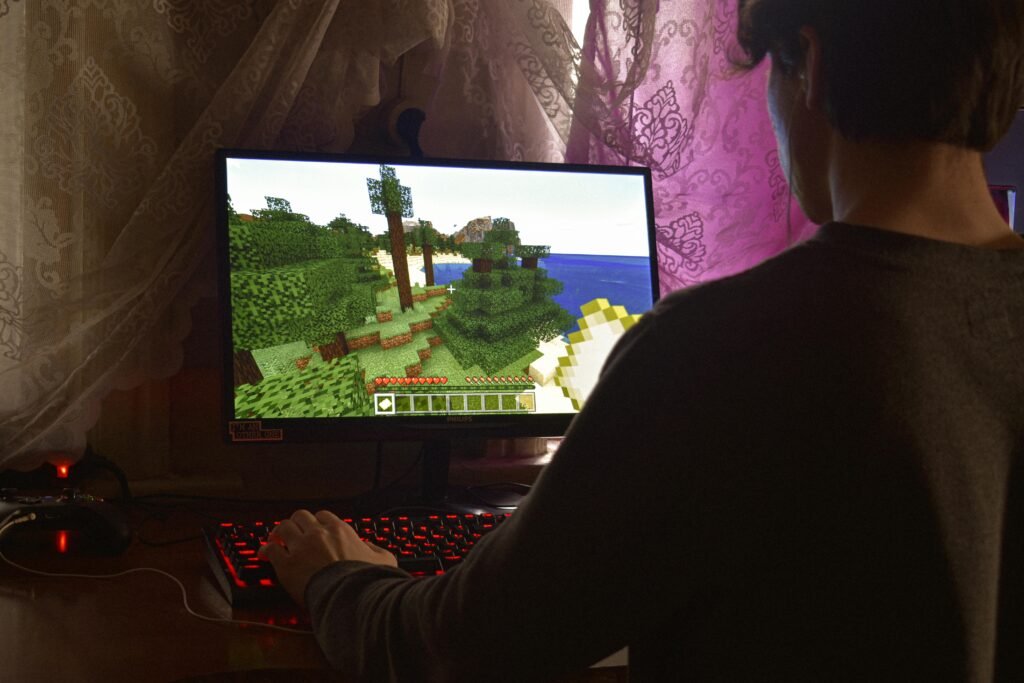
So what does this mean for your child?
If they’re serious about esports, encourage them to join a structured program. This could be a school team, a local club, or even an online academy that monitors progress and promotes healthy habits.
Look for programs that balance practice with academics. They should have rules about screen time, curfews, and school performance. A good coach will care about your child’s growth, not just their kill-death ratio.
If no program exists in your area, create one. Gather a few families, set some guidelines, and build a schedule. You don’t need fancy gear—you just need commitment and a shared vision.
Structure doesn’t kill fun. It helps fun thrive without becoming chaos. And when structure leads to better attendance, everyone wins.
13. 40% of high school esports athletes have lower attendance in non-core classes
Not all classes are treated equally—especially when students feel stretched. About 40% of high school esports athletes are missing more non-core classes like art, music, PE, or electives than their peers. These are often seen as “less important,” so they’re the first to go when time feels tight.
But here’s the thing—those classes matter too. They give students a break from heavy academics. They boost creativity, build confidence, and teach life skills that don’t come from textbooks. Skipping them often leads to missed chances for growth and joy.
Why are esports students missing these classes?
Some sleep in and skip morning electives. Others use elective periods to finish homework they didn’t do the night before. A few even leave school early to fit in extra practice or stream schedules.
Whatever the reason, this habit can slowly chip away at a student’s whole learning experience.
So what can be done?
Help your child value every part of school—not just math and science. Remind them that PE helps with stamina and health. Art helps with creativity and emotional expression. Music sharpens memory and rhythm. These skills even help in gaming—faster reactions, better decision-making, and a clearer mind.
Build respect for the full school schedule. If your child is skipping classes, ask why. Is it boredom? Exhaustion? Conflict with practice time? Once you know the reason, you can work together to find a solution.
If they truly need extra time during the day, speak with a counselor. Sometimes adjustments can be made without hurting their progress. But skipping without support or planning should never be the norm.
Well-rounded students make well-rounded players—and strong people, too.
14. Only 12% of student esports players keep a consistent bedtime routine
Bedtime routines may sound simple or even childish, but they are powerful—especially for teens and student athletes. Yet only 12% of student esports players actually stick to a consistent bedtime. That means 88% are going to bed at different times every night, which throws their whole system off.
Why does this matter?
Because the brain works best when it knows what to expect. A set bedtime teaches the body to wind down, release sleep hormones, and prepare for rest. Without it, sleep becomes harder to fall into and easier to interrupt.
For gamers, bedtime is often flexible—too flexible. One night they’re in bed by 11 PM. The next, it’s 2 AM. This irregular sleep rhythm leads to foggy mornings, crankiness, and lower performance in both school and gaming.
Here’s how to fix it.
Start small. Choose a realistic bedtime that works for your child’s school schedule. Maybe 10:30 PM on weekdays. Stick to it every night—even on weekends if possible.
Create a wind-down routine. This could be a shower, brushing teeth, setting an alarm, and reading a few pages of a book. It should be the same every night, so the body learns: “This means it’s time to sleep.”
Keep screens out of the bed. Watching videos or scrolling before sleep can trick the brain into staying alert. Instead, try soft music, a night light, or breathing exercises.
If your child has trouble falling asleep, look at what’s happening before bed. Are they eating late? Watching intense videos? Thinking about the game? Talk it out and create a calming space.
Routine builds rhythm. Rhythm builds balance. And balanced kids do better in everything they love.
15. 49% of student players say they struggle with time management
Time management is one of the biggest challenges for young gamers—and 49% of them say they’re struggling. That’s nearly half of all student esports players admitting they don’t feel in control of their time.
It shows up in small ways: forgetting assignments, rushing through homework, skipping meals, missing sleep. But over time, it can lead to bigger problems like dropping grades, missed opportunities, and even burnout.
Esports demands a lot—practice hours, game reviews, team meetings. School asks for even more—classes, homework, projects, tests. Add sleep, family time, and maybe a part-time job, and the day fills up fast.
So how can kids get better at managing their time?
Start with awareness. Sit down and ask: “Where is your time going?” Look at a full day together. Break it into hours. What happens between 3 PM and 10 PM? Where is time being wasted?
Next, set priorities. School always comes first. Sleep is non-negotiable. Esports is important, but it’s not everything. Once priorities are clear, it’s easier to make choices.
Use a planner. Write out what needs to happen each day—homework, practice, meals, rest. Check things off as they’re done. Even a small notebook can work wonders.
Teach the power of the timer. Set 30-minute focus blocks for homework. Take a short break. Then repeat. This “work, rest, repeat” rhythm helps fight distractions and build focus.
And finally, be kind. Kids are still learning. Some days will go perfectly, others won’t. But each day is a chance to practice. And the more they practice managing their time, the more they’ll feel confident and in control.
Esports teaches fast thinking. Time management teaches smart thinking. Combine both—and you’ve got something powerful.
16. 61% of esports students believe their grades would improve with better sleep
This stat is both surprising and hopeful. More than half of student esports players believe their grades would go up if they just got better sleep. That means they already know sleep matters—they just haven’t figured out how to make it happen.
That self-awareness is powerful. It means the conversation doesn’t need to start with lectures or rules. It can start with a question: “If you know sleep helps, what’s getting in the way?”
The answers will vary. For some, it’s gaming late into the night. For others, it’s stress, anxiety, or simply bad habits. Some students just don’t know how to fall asleep because they’ve never been taught.
So how do we help them get better sleep?
First, create a calm sleep environment. Make the bedroom a quiet, cozy, screen-free zone. Dim lights in the evening. Lower the room temperature slightly. Keep it consistent.
Second, focus on wind-down habits. That last hour before bed is key. Avoid loud music, scary videos, or fast-paced games. Encourage things like stretching, warm showers, journaling, or reading.

Third, link sleep to success. Show your child how more sleep equals better grades, quicker thinking, and smoother gameplay. If they care about doing well (and most do), they’ll start to care about sleep too.
And remember, change takes time. You won’t fix sleep habits overnight. But even 15 extra minutes of rest each night can start to make a difference.
Sleep is the silent superpower. And when kids unlock it, everything starts to improve.
17. Students involved in school-supported esports programs show a 15% improvement in GPA over time
Here’s a stat that surprises many parents—in a good way. When students join esports programs that are officially supported by their school, they often see their GPA improve. Not just by a little—on average, their grades go up by 15% over time.
Why does this happen?
Because structure works. School-supported programs usually have built-in expectations. Students must keep their grades up to stay on the team. Coaches track academic progress. Practice is balanced with homework time. There’s a healthy mix of fun and focus.
These programs also teach more than just game skills. Students learn teamwork, leadership, communication, and goal-setting. And when kids are surrounded by supportive peers and mentors, they feel more motivated to succeed in both gaming and academics.
So if your child is passionate about esports, find out if their school offers a team or club. If it doesn’t, ask if you can help start one. Many schools are open to launching esports programs, especially when parents and students show interest.
Look for a program that puts academics first. It should have rules about GPA, attendance, and behavior. Coaches should work with teachers and families—not against them. And students should feel like they’re part of a team that values both play and progress.
Esports isn’t the problem. In fact, when done right, it’s part of the solution. A good program can lift a student’s confidence, build responsibility, and raise those grades.
When gaming becomes a guided journey, success follows.
18. 70% of esports athletes skip meals to extend practice sessions
Skipping meals may sound like a small thing, but it’s not. When 70% of student gamers say they skip meals to keep playing or practicing, it shows a deeper issue—poor self-care.
The body needs fuel. Especially growing bodies and developing brains. When students skip meals, they’re not just missing food. They’re missing energy, focus, and mood balance. That affects their performance both in-game and in the classroom.
Why do they skip? Sometimes it’s because they lose track of time. Other times, it’s because they think stopping to eat will hurt their streak or rank. A few may even feel pressure from teammates to “just keep grinding.”
But the truth is: no amount of practice can make up for a tired, unfed brain.
So how do you help your child keep up with meals?
First, talk about food as fuel. Show them how a strong breakfast sharpens their mind for school. How a healthy lunch helps them stay steady in long classes. And how a real dinner supports muscle recovery and reaction time for evening games.
Second, set alarms or reminders. If your child often forgets to eat, create simple alerts on their phone or calendar. These gentle nudges can help them pause and refuel.
Third, prep fast meals. If they’re in the zone and don’t want to leave the screen, have healthy snacks ready—fruit, nuts, yogurt, or protein bars. It’s not ideal to eat while gaming, but it’s better than skipping altogether.
Also, remind them: skipping meals doesn’t make them stronger. It makes them slower. Smart gamers know when to take care of their bodies.
By keeping meals a part of their daily routine, your child can play harder, think clearer, and grow stronger every day.
19. Less than 10% of student players track or manage their practice-to-study ratio
Here’s something most kids don’t think about—and that’s exactly the problem. Fewer than 1 in 10 student gamers are keeping track of how much time they spend practicing compared to how much time they study.
That’s like training for a game without checking your stats. You don’t know what’s working and what’s not.
Without tracking, it’s easy to think you’re balanced when you’re not. A child might feel like they studied “a lot,” but when you add it up, it’s only 20 minutes. Meanwhile, they may have gamed for 4 hours.
This unawareness can lead to grade drops, stress, or even fights at home—because no one knows where the time is going.
So how do we help kids manage this better?
Start with a simple log. It doesn’t have to be fancy. A notebook or a notes app will do. Write down when practice starts and ends. Do the same for study sessions. At the end of the week, compare.
Talk about what you see. Is gaming eating up too much time? Is study time focused or just “pretend” studying? Use the numbers to make smart choices—not to punish.
Set clear targets. For example, for every 1 hour of gaming, aim for 1 hour of school work. You can make it a challenge: Can they hit a perfect 1:1 balance this week?
Also, check in regularly. Once a week, sit down and review. Are they staying on track? If not, what needs to change?
Managing practice and study time is like building a strategy in a game. It takes planning, tracking, and adjusting. And once your child gets the hang of it, they’ll start to win in more ways than one.
20. Esports athletes who sleep 7+ hours nightly score 25% better on memory tests
Here’s a stat that should catch every gamer’s attention: students who sleep seven or more hours a night perform 25% better on memory tests than those who sleep less. That’s a huge difference—especially when memory is such a big part of both learning and gameplay.
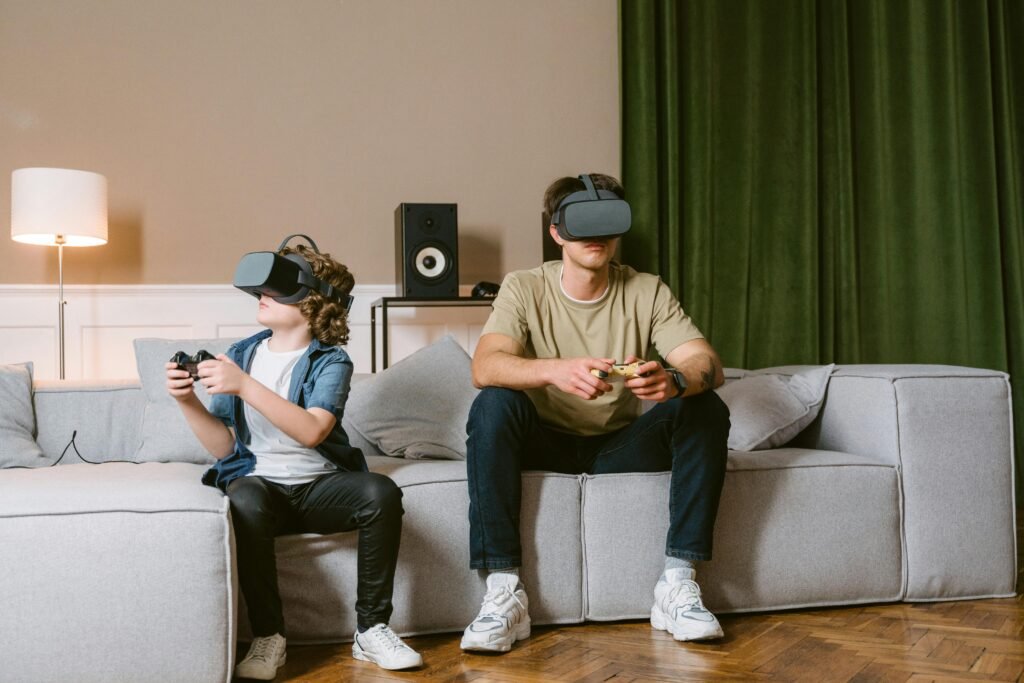
In school, memory helps with everything—remembering formulas, vocab words, historical events, and more. In gaming, memory is key for maps, strategies, combos, and timing. If you can’t remember what you just learned or what move comes next, you’re always one step behind.
So what’s the science behind it?
During deep sleep, the brain organizes all the things it learned that day. It turns short-term memory into long-term memory. That’s why kids who study hard but sleep poorly often forget everything by the next morning.
Here’s how to make sleep a tool—not a tradeoff.
Build a bedtime that gives at least seven hours of rest. If your child wakes up at 7 AM, they should be asleep by midnight at the latest. And not just lying in bed—actually sleeping.
Protect sleep with healthy habits. That means stopping screen time an hour before bed, keeping the room dark and cool, and sticking to a bedtime routine.
If your child needs extra help, try calming techniques like breathing exercises, listening to sleep music, or writing down tomorrow’s to-do list to clear the mind.
Make it clear: sleep is a secret weapon. It’s not boring. It’s not wasted time. It’s a game booster and a grade booster.
With just one simple change—getting enough rest—your child can think clearer, remember better, and perform at their best every day.
21. Students practicing more than 25 hours a week show an average GPA of 2.4
This stat is a warning sign. When students practice esports more than 25 hours a week, their GPA drops—to an average of 2.4. That’s below the threshold for many scholarships, college programs, and academic honors.
Why does this happen?
Because 25 hours is a lot. That’s over 3.5 hours every day, including weekends. It’s the same time commitment as a part-time job. For most students, it’s too much to handle alongside school, sleep, and other responsibilities.
At this level, gaming stops being a hobby—it starts to dominate everything. Students may skip studying to fit in one more match. They may lose sleep, fall behind on assignments, or feel too mentally drained to focus in class.
What’s the solution?
First, look honestly at the schedule. If your child is gaming 3–4 hours daily, ask: what’s getting pushed aside? Is it homework? Reading? Friends? Meals? Once you know what’s being lost, it’s easier to set healthy limits.
Consider scaling back. Try capping practice at 15–20 hours max during the school year. Save the extra sessions for weekends or holidays. And keep game-free hours in the day—especially before bedtime and right after school.
Also, check in on GPA often. If it dips below 2.8, it’s time to re-evaluate how much time is going into esports. Make changes quickly—before the gap becomes too wide to fix.
Let your child know this isn’t about punishing their passion. It’s about protecting their future. Gaming can be a wonderful part of life. But it should never replace learning, growth, or self-care.
The key is balance—and 25 hours a week tips the scale too far.
22. Those practicing under 10 hours weekly tend to have a GPA of 3.2 or higher
On the flip side, here’s the good news. Students who keep their esports practice under 10 hours a week are doing well—not just in the game, but in school too. These kids tend to hold a GPA of 3.2 or higher.
That’s a sweet spot. It allows for improvement in gaming without letting go of school responsibilities. It shows that you can love esports and still succeed in the classroom.
Why does this work so well?
Because under 10 hours gives enough time for strategy, skill-building, and team practice, while still leaving plenty of time for homework, rest, and other interests. It teaches balance—one of the most important life skills your child can learn.
If your child is just getting into esports, this is a great goal to set: no more than 1–1.5 hours a day on school days. On weekends, maybe a little more. But always within limits.
Use this number as a checkpoint. If grades start to drop or energy is low, pull back. If things are going well, keep the same rhythm.
Also, remind your child that slow, steady progress is powerful. You don’t need to play for five hours to get better. A focused, one-hour practice can do more than hours of distracted play.
When esports becomes part of a healthy weekly routine—not the whole routine—kids thrive. And those high GPAs show it.
23. Over 65% of esports athletes report feeling fatigued during school hours
Tired minds don’t learn well. And when 65% of student esports players say they feel tired during school hours, it’s a big red flag.
This kind of fatigue isn’t just “a little sleepy.” It’s head-on-desk, eyes-glazed-over, struggling-to-focus tired. It affects memory, mood, and motivation. It leads to poor participation, missed assignments, and even falling asleep in class.
Why are esports players so tired?
Late-night gaming is one big cause. Poor nutrition is another. Add in screen fatigue, stress, and inconsistent sleep—and it’s no surprise students feel drained by 10 AM.
So how can you help your child recharge?
Start by protecting sleep. Set a firm bedtime and stick to it—even if it means saying no to late-night tournaments. Eight hours of sleep should be the goal, every night.
Next, look at screen breaks. If your child is staring at screens for school and then for gaming, their brain never gets a true rest. Add short breaks every hour. Encourage outdoor time. Get some sunlight in the morning—it helps reset the body clock.
Hydration and food matter too. A glass of water in the morning, a protein-rich breakfast, and regular meals throughout the day make a big difference.
Also, teach your child to recognize fatigue. If they feel foggy or frustrated, it’s time to rest—not push harder. Power naps, stretching, or quiet time can help reboot their brain.
Fatigue is not a weakness—it’s a signal. Listen to it. Fix the cause. And you’ll see better energy and better grades too.
24. 30% of student esports players report dropping a class due to esports-related time constraints
Dropping a class is a serious step. And yet, 30% of student esports players say they’ve had to do it—not because they weren’t smart enough, but because they didn’t have time.
That’s a tough spot for any student. It means they’re falling behind. It means something had to give—and they chose school over esports too late.
This stat shows how real the pressure can get. When gaming hours aren’t managed well, school takes the hit. And dropped classes can delay graduation, hurt GPA, or affect college admissions.
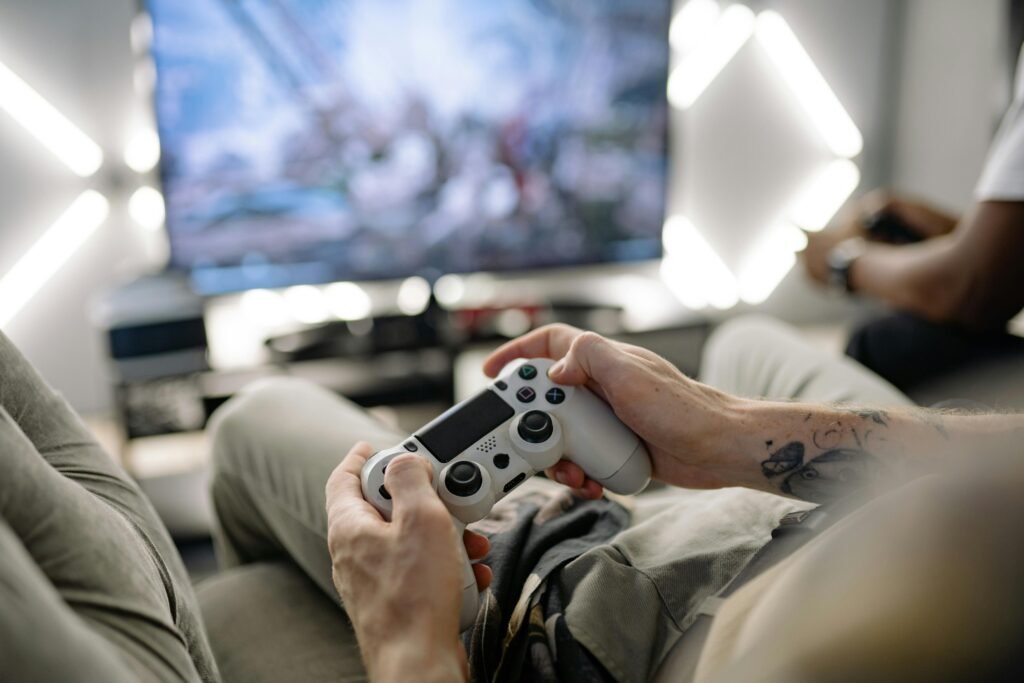
How do we stop it before it gets to that point?
Start with early signs. If your child starts saying things like “I don’t have time for that class,” or “I’ll just skip it today,” pay attention. These are warning signals.
Create a time audit. Sit down together and break down a typical week. How many hours go to school, homework, sleep, gaming, and rest? Often, just seeing the numbers helps kids realize what needs to change.
Encourage communication. If your child is overwhelmed, talk to their teachers. Sometimes extensions or support are possible—but only if you ask early.
Also, set non-negotiables. School comes first. If esports time ever threatens a class, the gaming time gets adjusted—not the class.
Teach your child that dropping a class is not a failure—but it should never be a regular habit. When priorities are set clearly from the start, there’s less chance of reaching that breaking point.
Gaming is a part of life. But education is the foundation.
25. Students in varsity-level esports programs often receive academic coaching—boosting GPA by 0.3 points
Here’s a smart strategy that’s working in schools across the world. In many varsity-level esports programs, students are paired with academic coaches. And the result? Their GPA goes up—by an average of 0.3 points.
That kind of bump can take a student from a 2.7 to a 3.0. From good to great. From barely passing to thriving.
Academic coaching works because it builds structure. Coaches help students plan their week, manage their schedule, and stay accountable. They check grades, set goals, and give reminders. It’s like having a personal trainer—but for the mind.
And for esports athletes, it makes a huge difference. Gaming can pull attention away from school. Coaching pulls it back in.
If your child is in a formal esports program, ask about academic support. Is there a coach, advisor, or mentor available? If not, suggest starting one.
If you’re managing esports at home, become the coach. Set weekly check-ins. Help plan assignments. Celebrate wins—both in school and in the game.
The key is to support, not control. The goal is independence. Coaches don’t do the work—they guide the student to do it themselves.
And when that support is there, the results are clear: higher focus, better grades, and more balanced students.
26. 55% of esports students say they sleep less on weekdays and binge sleep on weekends
More than half of student esports players admit to a common pattern: not sleeping enough during the week, then “catching up” on the weekend. At first glance, this might seem harmless. But this kind of sleep habit—called “binge sleeping”—can do more harm than good.
Why? Because your body doesn’t work like a piggy bank. You can’t just deposit sleep on Saturday to make up for what you missed Monday through Friday. The brain needs steady rest every night to learn, recover, and stay sharp.
Students who follow this pattern often feel tired all week, then groggy and out of sync by Sunday night. Monday mornings become even harder. Their sleep rhythm is broken—and it affects memory, mood, and motivation.
So how do you help your child break the binge-sleep cycle?
Step one is consistency. Set a bedtime and wake-up time that works every day—even on weekends. It doesn’t have to be exact, but try to stay within a 1-hour window. That helps reset the body’s natural clock.
Next, help them fix their weekday routine. If they’re staying up late for gaming, work together to adjust. Move practice earlier. Keep evenings screen-light. And make sure school work is done before play.
Encourage small habits like dimming the lights in the evening, skipping caffeine after dinner, and using an alarm—even on Saturdays.
Finally, explain the “why.” Help your child see that sleep isn’t just about feeling rested—it’s how the brain builds skills, remembers what it learned, and stays healthy.
Weekend sleep-ins might feel good in the moment, but steady sleep wins in the long run.
27. Only 8% of student players actively monitor their academic progress alongside gaming
Here’s a stat that shows where many students are missing the mark: only 8% of them keep an eye on their grades, attendance, or assignments while tracking their gaming goals.
That means 92% are focused on leveling up in games—but not in school.
It’s not that they don’t care. Most students want to do well. But their attention is limited. It’s easy to remember your kill/death ratio or your ranking. It’s harder to track your GPA, your missing homework, or when your next test is.
So what’s the fix?
Make academic tracking part of their routine. Help your child check their grades online once a week. Use a planner or app to list assignments and due dates. Review progress every Sunday—what’s done, what’s coming up, and where help is needed.
Pair this with their gaming goals. Just like they might aim to hit a new rank, they can aim to raise a grade from a B to an A, or finish a big project early.
Use visuals if needed. Post a simple tracker on their wall or desk: one side for gaming goals, one side for school goals. Seeing both helps keep balance in view.
Most importantly, celebrate both wins. If your child aces a test, cheer just as loudly as when they win a game. This helps them value school success the same way they value game success.
Monitoring academics shouldn’t feel like extra work—it should feel like progress. And when students take charge of their learning journey, they win in more ways than one.
28. Students who combine esports with physical activity report better focus and GPA stability
Esports and exercise might seem like opposites—but together, they’re a powerful pair. Students who make time for both gaming and physical activity report better focus in class and more consistent grades.
Why? Because exercise boosts the brain. It improves memory, sharpens thinking, and reduces stress. It also improves sleep quality—something we’ve already seen is a game-changer for student gamers.
Physical activity doesn’t have to mean playing sports. It could be stretching, biking, walking, swimming, or even dancing to music. The goal is to move your body and give your brain a break from screens.
Here’s how to build it into your child’s routine:
Encourage a short walk after school. Just 20 minutes outside can improve mood and focus before homework or practice.
Add movement breaks between game sessions. After every hour of play, do 5 minutes of jumping jacks, stretches, or quick chores.
Try something fun on weekends—hiking, skating, or a family game that gets everyone moving.
Also, remind your child that pro esports teams often include fitness as part of training. Top players know that a healthy body supports a sharp mind and fast reactions.
When movement becomes part of the mix, students feel more balanced. And that balance helps with both school and gaming success.
29. Esports athletes with a practice cap of 2 hours/day maintain an average GPA of 3.4
This stat might be one of the most useful of all. Students who set a limit—2 hours of esports a day—often hold an average GPA of 3.4. That’s a strong academic performance, even with daily gaming in the mix.
So what makes this 2-hour cap work?
It forces focus. When kids know they only have two hours, they tend to practice smarter. They’re more likely to review strategy, work on skills, and stay off distractions like browsing or chatting.
It also protects time. That leaves room for homework, meals, family, rest, and real life. It builds discipline—and that carries over into school and beyond.
If your child doesn’t already have a daily limit, now’s the time. Talk about the benefits of the 2-hour rule. Work together to schedule those hours: maybe one after school and one after dinner. Or two in the evening, after all schoolwork is done.
Use tools like parental controls or simple alarms to track it. And make it clear that this isn’t punishment—it’s performance training.
Let your child know that most top esports players started with balance. They kept school first, practiced smart, and protected their health.
And the results speak for themselves: sharper thinking, better grades, and more freedom to enjoy the game without falling behind.
30. 43% of parents say they worry about esports practice hurting school performance
This final stat isn’t about the kids—it’s about you. 43% of parents say they’re worried that esports is getting in the way of school. And they’re not wrong to feel that way.
When practice goes too long, when sleep gets skipped, when grades slip—worry is natural. Parents want their kids to be happy, but also to succeed. They want to support their passions, but not at the cost of their education.
So how do you balance support with structure?
Start by staying involved. Don’t just ask, “How was your day?” Ask, “How’s your gaming going?” and “What’s coming up at school?” Keep the conversation open. Make it a partnership—not a power struggle.
Learn about esports. Watch a match. Ask your child to explain their favorite game. The more you understand, the better you can guide.
Set clear expectations. School comes first. Sleep matters. Meals can’t be skipped. As long as those basics are covered, practice is okay. But if something starts to slide, you adjust together.
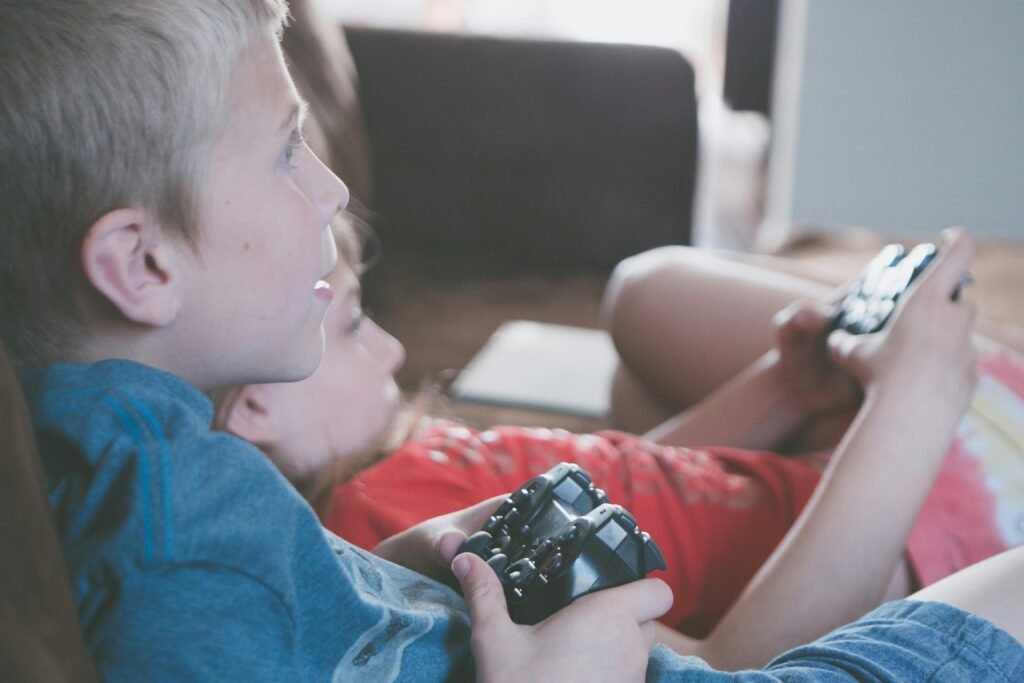
Use tools. Set alarms, use schedules, track grades. These help your child stay on course—and give you peace of mind.
And remember: you’re not alone. Many families are learning how to navigate this new world of competitive gaming. You’re doing your best. And with the right support, your child can thrive in school and in their favorite game.
Conclusion
Esports is exciting, fast-paced, and full of opportunity. But for students, it’s also full of choices—how to spend their time, how to balance school with gaming, and how to grow into responsible, successful young people.
The stats we’ve explored tell a clear story: gaming alone doesn’t cause problems. But too much, without balance, can lead to sleep loss, skipped classes, and lower grades. On the other hand, students who manage their time, get enough rest, and keep school as a priority not only enjoy esports—they thrive in it.
